voyager ziwani camp
Voyager Ziwani Camp – Serenity, Wildlife, and Riverside Comfort
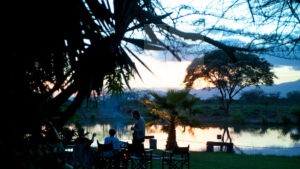

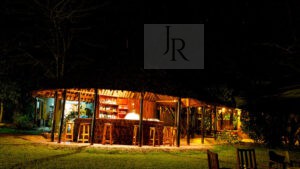
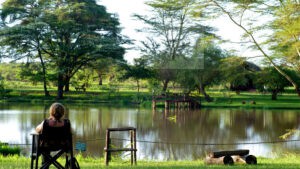
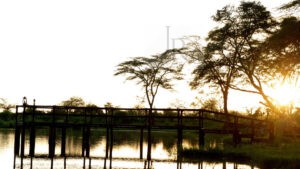
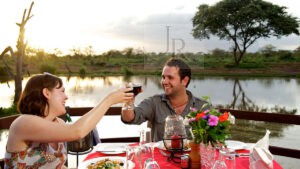
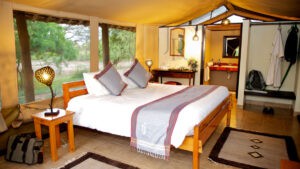

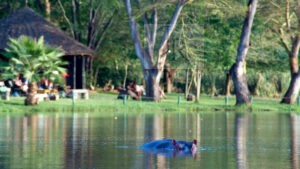

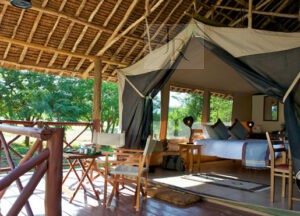
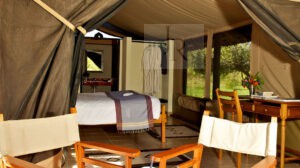
Exclusive Location off the Beaten Track
Voyager Ziwani Camp is located in the Ziwani Conservation Area, on the western edge of the Tsavo West National Park in Kenya, close to the border with Tanzania at Taveta. It is located directly on the Sante River, which is also a habitat for hippos and crocodiles. The accommodation offers a breathtaking view of Mount Kilimanjaro.
Surrounded by acacia woodland and riverine vegetation, the camp offers one of Kenya’s most peaceful safari experiences—far from crowds and mass tourism.
Spacious Tented Rooms with River Views
The camp features 25 large canvas tents built on raised wooden platforms, each with a private veranda overlooking the river. Guests can often spot hippos, crocodiles, and even elephants directly from their tent. Every tent is equipped with an ensuite bathroom, hot shower, washbasin, flushing toilet, and comfortable safari furnishings.
Immersive Nature Experience – Day and Night
Thanks to its secluded setting, Voyager Ziwani delivers uninterrupted wildlife encounters. From breakfast by the water to evenings around the campfire beneath the stars, the camp brings you closer to the rhythms of the African bush. Nature walks, birdwatching, and guided bush explorations are perfect for adventurous guests.
Sustainability & Family-Friendly Design
The camp runs on solar power, uses local produce, and incorporates water-saving systems to minimize its ecological footprint. It’s also family-friendly, with special children’s activities and safe walking paths throughout the property.
Ready to immerse yourself in one of Kenya’s most tranquil safari camps?
Book your stay at Voyager Ziwani today and experience the wild—your way.



